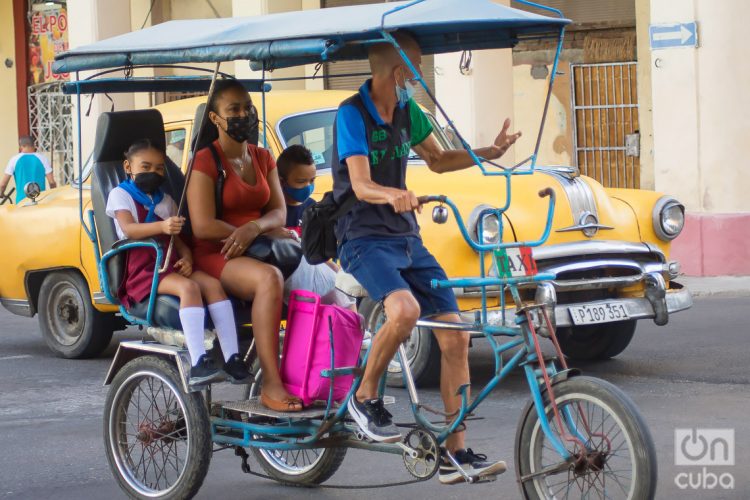It’s 7:00 PM in the Plaza del Cristo, in Havana. As night falls, life seems to go on normally in this busy place in the historic center of Havana. There are children playing, young people listening to music, people chatting on benches, others passing by or stopping to buy from a street vendor, tourists entering or leaving a private restaurant in the area, couples who do not hide their love in the sight of the whole neighborhood.
Meanwhile, towards one of the corners of the park, in a renovated secondary school, a group of neighbors is preparing to debate the draft of the new Family Code, as part of the popular consultation process that began in February and that will last until next April. Cuban flags, a bust of José Martí and photos of the late leader Fidel Castro welcome some thirty participants, including those who are to lead the meeting, to which several media outlets have been invited. I ask one of the organizers about the many people who have been left outside and he tells me that this is just one of several meetings scheduled in the community, that everyone will have their chance to attend an assembly and give their opinion on the Code.
Finally, the meeting begins and, after a brief speech by a neighborhood leader, two invited specialists take the floor, offering a broad explanation of the legislative proposal and dwelling, particularly, on some points that have been the subject of social controversy, such as parental responsibility on children and adolescents, the concept of marriage in all its breadth, adoption and solidarity gestation, domestic violence, and the rights of older adults, the latter endorsed, moreover, by the fact that the participants comprise not a few neighbors of the so-called “third age.” In line with what the government has reiterated, the experts maintain that it is an inclusive and advanced code, which does not deprive anyone of rights, but, on the contrary, includes all people.
Then comes the turn of the attendees’ opinions, but this part lasts less than imagined. Those who speak say they are mostly in favor of the draft code and agree with the assessments of the specialists about its fairness and inclusiveness. Someone makes an exhaustive comment about the elderly and other people in vulnerable situations, in his opinion now more protected by the Code, and ponders the role of those who care for them, even when they are not blood relatives, to whom he considers it necessary to provide greater legal protection. There is also a proposal to modify the title of a chapter and a question about the minimum age for marriage, which the experts clarify. And a little more. In about an hour and a half, the assembly ends, and the neighbors quietly leave the school. Outside, the park looks almost identical to how it did before the meeting.
***
I know, from the comments of friends and acquaintances, that not all the assemblies on the Code held up to now ― according to official sources, some 79,000 meeting points have been established throughout the country and also abroad, in which these meetings will be held until next April 30 ― have been as peaceful as this one in the Plaza del Cristo. I have heard of intense controversies and heated debates about different aspects included up to now in the Code ― such as same-sex marriage and the substitution of the concept of parental custody ― and of pages and pages that have had to be filled by those in charge of collecting the opinions of the population in these exchanges. According to a first cut of the National Electoral Council (CEN), more than 41,000 assemblies had already been held in which more than 136,000 proposals for the legislation had been compiled.
However, I also know, from experience in similar situations, that not all people like to say what they think in public, and even less so if the space in which they could do so has been formally organized.
On the way out of the secondary school, I approach a group of young people who are chatting in the other corner of the park. They tell me that they are between 17 and 19 years old, so they could already vote in the referendum that should approve or not the Family Code, once the possible modifications derived from the popular consultation are made. I ask them if they knew about the assembly that night, but none of them seems to have a clear idea of what was going on. I tell them about the Code and then one of them tells me that he was already in “another one of those meetings” a few days before, but that he didn’t say anything anyway because he really didn’t know what to say, that “it’s not his style.” “From what I’ve heard,” he says, “I think it’s fine, but the truth is that I don’t understand much about those things.”
A young woman, on the other hand, makes fun of her friend and tells me that the draft Code seems “important” to her; that he has read about it and has also seen what they have said on television, and that just for giving voice and rights to everyone within the families, including the youngest, and also because of the option of marrying anyone who wants to do it, whatever their sexual orientation, she is “very much in agreement.” She tells me that she has a gay cousin, whom she “loves very much,” and that she is glad that the Code gives him the possibility of marrying and leading his life “like any other person,” an idea that other members of her group also claim to support, before going about their business.
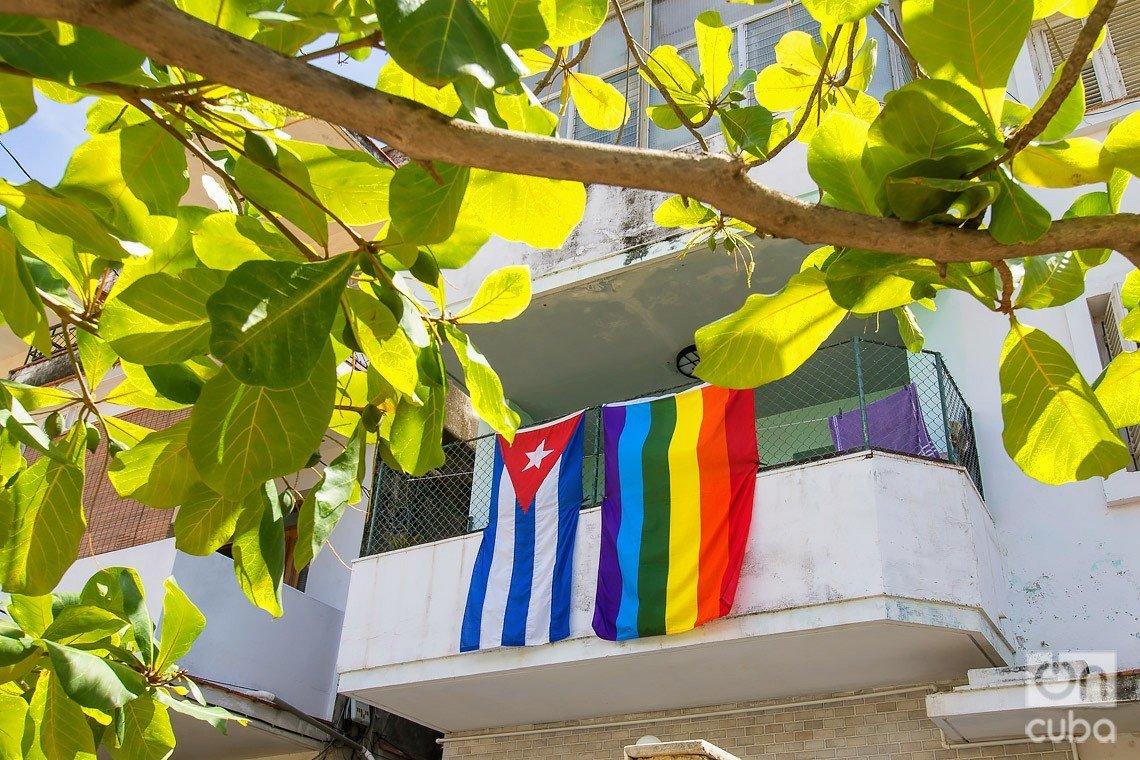
The position of these young people, however, is not the same as that of Georgina and Arturo, both over 50 years old, with whom I talk a few days later on a tour of the streets of Havana. Both believe that marriage should be “only between a man and a woman,” although for different reasons. Her religious beliefs weigh on her ― she is “Christian,” she tells me without further details ― and she alleges that same-sex marriage goes “against the commandments of the Lord,” while she cites “cultural” issues and assures that, although she understands the “good intention” of the Family Code, it does not seem to her that Cuban society is currently prepared for such a “drastic” change.
Georgina is also concerned that homosexual couples can adopt and raise children because of “how that can affect the development” of these minors, who, from her point of view, would not grow up in a “normal family.” On the other hand, she is not opposed to the idea of solidarity gestation, because she considers it an “altruistic act,” “of love and life,” which gives a couple the opportunity to have children ― always made up of a man and a woman. She also defends the protection of women, the elderly and vulnerable people, aspects that, in her opinion, should be kept in the legislative proposal that will be taken to a referendum.
Arturo, for his part, states that he does not fully understand the concepts of “parental responsibility” and “progressive autonomy,” nor does he agree that parents “not have the power to decide about their children” and that “now we’ll have to let the kids do what they want.” “I don’t think things are exactly as people say out there, because it doesn’t fit in my head,” he points out, “but, just in case, when the Code meeting is held on my block, I’m going to ask them to clarify that point for me,” and, if it’s like they say, make it clear that I don’t think it’s right. Because who can know what is best for children than their own parents?”
***
Magaly is 78 years old, but she says she “still feels strong” and, as such, she prefers not to spend her days “with folded arms” or to be treated “as if she were no longer good for anything.” Therefore, she sees “very well” that the Code defends the rights of older adults and supports the role of grandparents within the family. “I raised two of my grandchildren almost alone because their parents spent a lot of time working and on ‘missions’ outside the country. They practically lived with me and my husband, and we were the ones who were on top of all their things, including school, so I know very well what I’m talking about,” she says. “Luckily, in my family, there have never been any problems with these issues, but I know of others in which the parents very happily come along and discredit the grandparents in front of the children, and even mistreat them and abandon them, no matter what they have done before for them and their children.”
Magaly, a retiree, claims to be “in favor of approving” the Code, because, she says, Cuba cannot continue to be governed by a law that “is more than 40 years old” and “has nothing to do” with what the country was at the time it was instituted. However, she regrets not having been able to obtain the tabloid with the text of the draft in order to “read it calmly” and learn “first-hand” all the aspects it contains. She says that one of her grandchildren downloaded it from the internet on a cell phone, but that it’s “difficult” for her to read it and she fears that other elderly people are in the same situation, because “it seems much fewer tabloids were printed than for the Constitution.”

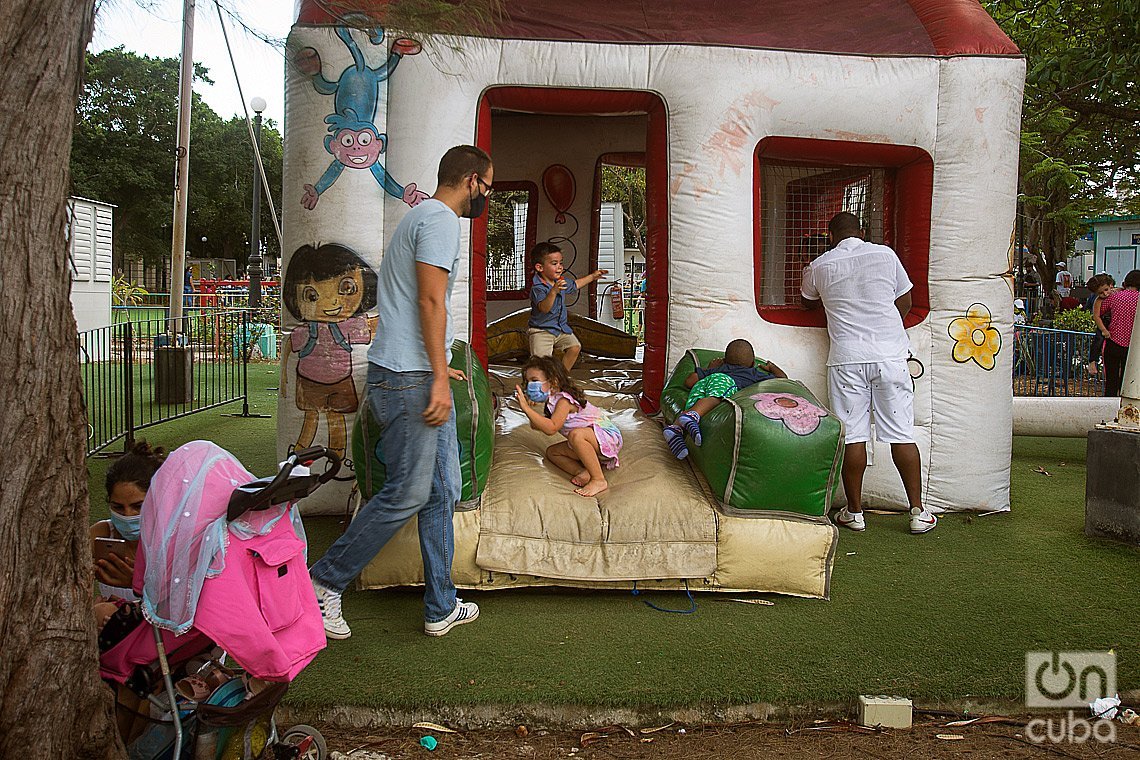
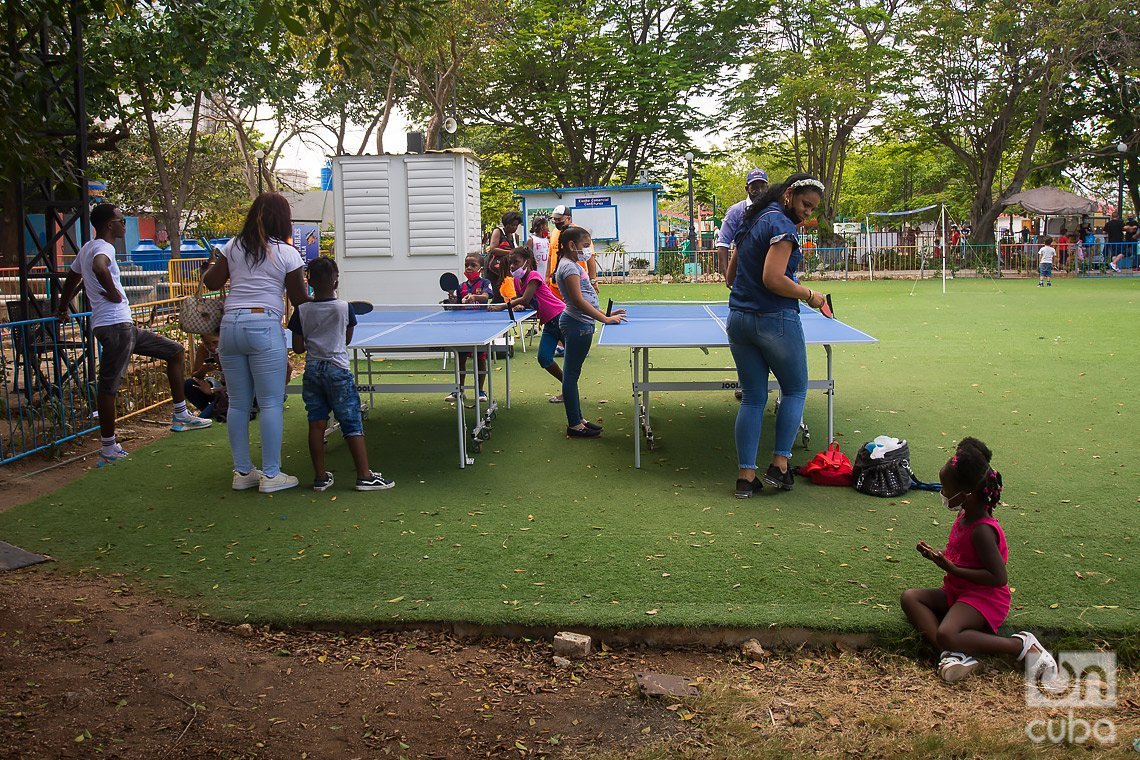
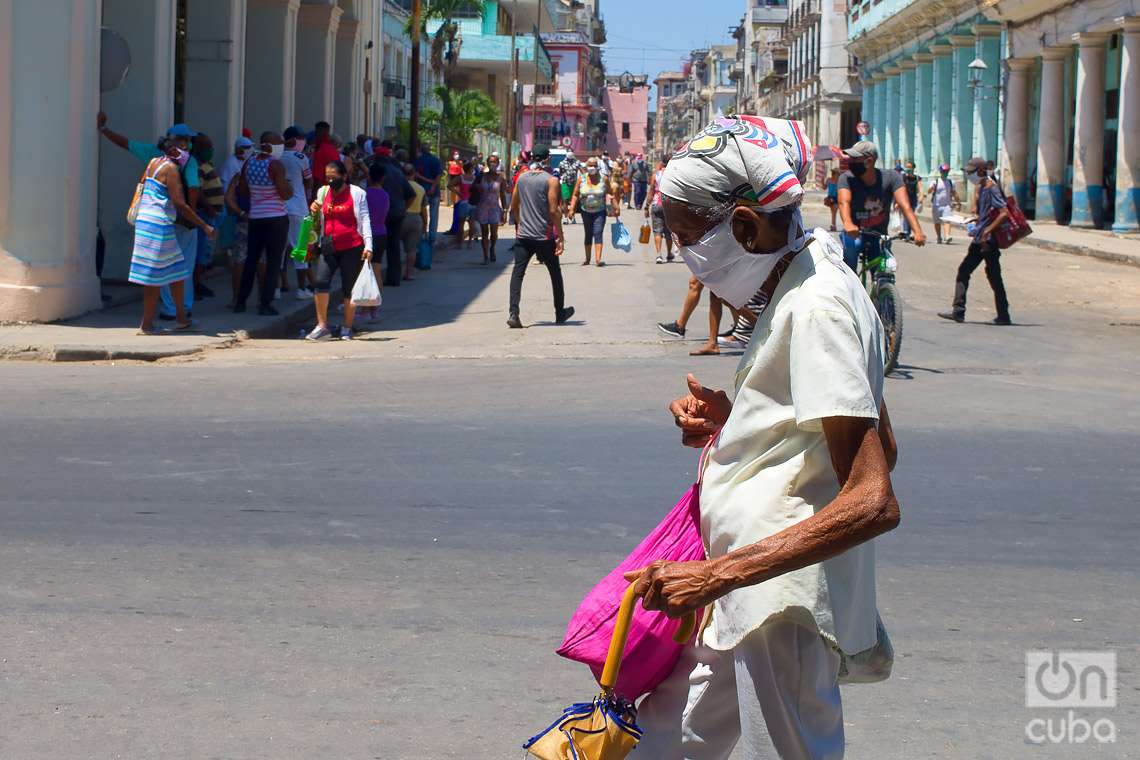
Mayra, for her part, says she is concerned about the understanding of the document by “ordinary people” and also about the “lack of time” for reading and analyzing it. This “more than four decades old” housewife confirms that she has had the printed tabloid at hand because her father-in-law “got it at the newspaper stand,” but that she “hardly had time” to consult it. “Imagine, I spend the day doing housework, because my husband works, taking care of the kids, my father-in-law, queuing, inventing what to eat, and when I have a free moment, the least I want do is to read,” she says. “To make matters worse, the other day I decided to do it and I didn’t understand much, not even reading the explanation of the more technical words that are in the back (glossary). And I only read a few pages, but have you seen how long the Code is? Not everyone can understand that, I think.”
According to her, even her father-in-law, who “does have more time to read” and “doesn’t miss the Mesa Redonda TV program or those lawyer programs (Hacemos Cuba),” “he still doesn’t understand many things” of the text, while her husband ― ”who arrives dead tired every day from work” ― says that “he is not going to waste time” reading it, because “he is not going to understand it either” and “it’s going to be approved even if people do not agree.” Her friend Dunia, she points out, thinks the same and even asserts that “she is going to vote against” because she is not going to approve “something she does not know what it says,” but Mayra affirms that she would like to “know well” the draft, well, “in the end, that is going to be the law for all families in Cuba and it is important to know what it says, in case we will need it at some point.”
Leonardo, like Mayra, also considers that, “even if a bit of an effort has to be made,” “everyone should read the Code and give their opinion.” He, he says, has already done it and gave his evaluations both in the assembly of his neighborhood and, before, digitally, when the previous version of the draft was published. This young engineer says he supports the approval of the draft Code, which he considers “necessary” in order to have “a better country,” but understands that there are people with doubts and dissatisfactions about the text, and even others who are against it because of “their conceptions and beliefs.” In fact, he supports that these people “have every right” to oppose the Code and express it publicly if they so believe, and does not share the opinion of some, such as Mayra’s husband, that it is not worth debating about it because “It’s not going to change anything.”
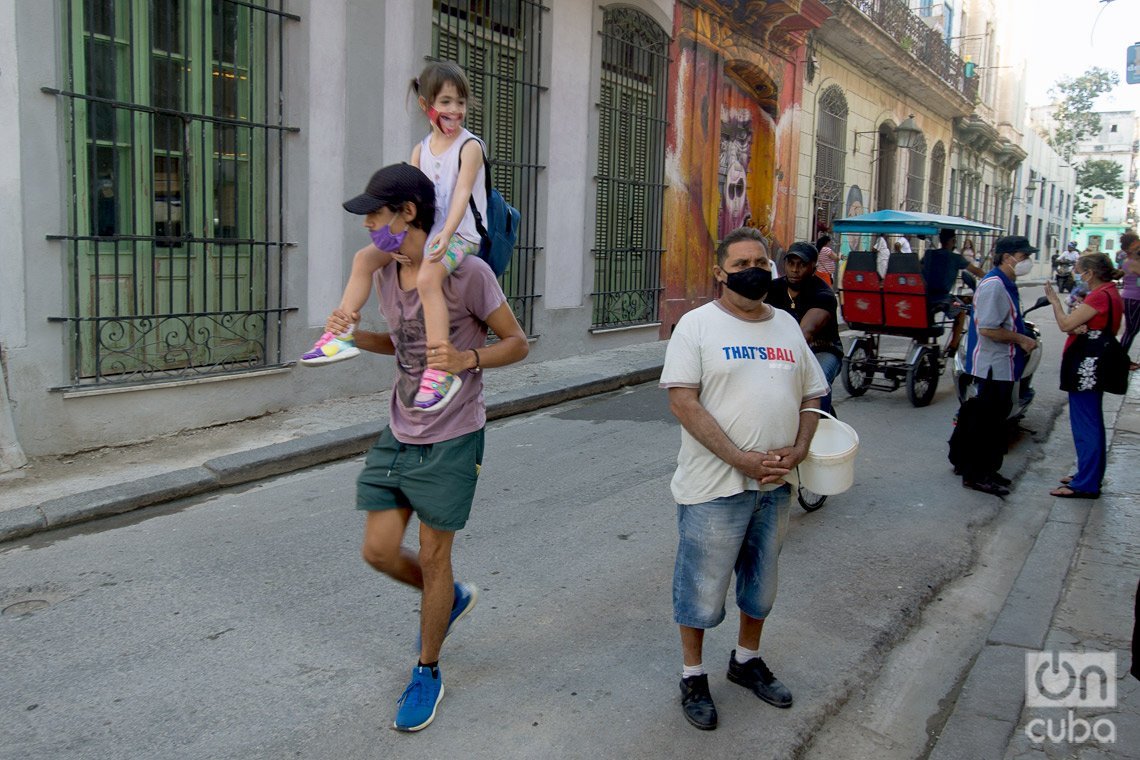
In his opinion, “perhaps the Code should not be taken to a referendum” because “it is about rights for people,” but he considers that “if it has already been decided” then the prior popular consultation and the processing of the assessments derived from it must be done “as it should be, without bias or formalism.” “I believe that everyone’s opinions must be listened to and taken into account,” says Leonardo, who thinks that in this way “the Code will truly resemble more what Cubans think.” In this sense, he highlights the importance of the draft Code being “explained in detail” by specialists, so that people “can better understand its content” and “understand its benefits,” but he is concerned about the insistence of the authorities and the media on the subject because he fears that this, far from helping, will lead to a possible boomerang effect.
“People have to be given all the elements so that they can analyze the draft and then decide if they support it. That’s fine,” he points out. “But it seems to me that (the authorities) are overloading the media a bit, with a campaign that, moreover, openly takes sides in favor of the Code, and I have already heard opinions against it, not so much because they disagree with what it says, but to contradict the government. And that seems terrible to me. I believe that if it is finally approved, the Code can help make Cuba a better country, because it will better represent families legally, and I trust that most people are aware of that. But that is something that, in the end, the people themselves have to confirm with their opinions and with their vote, they are the ones that really have to count when making a decision.”

